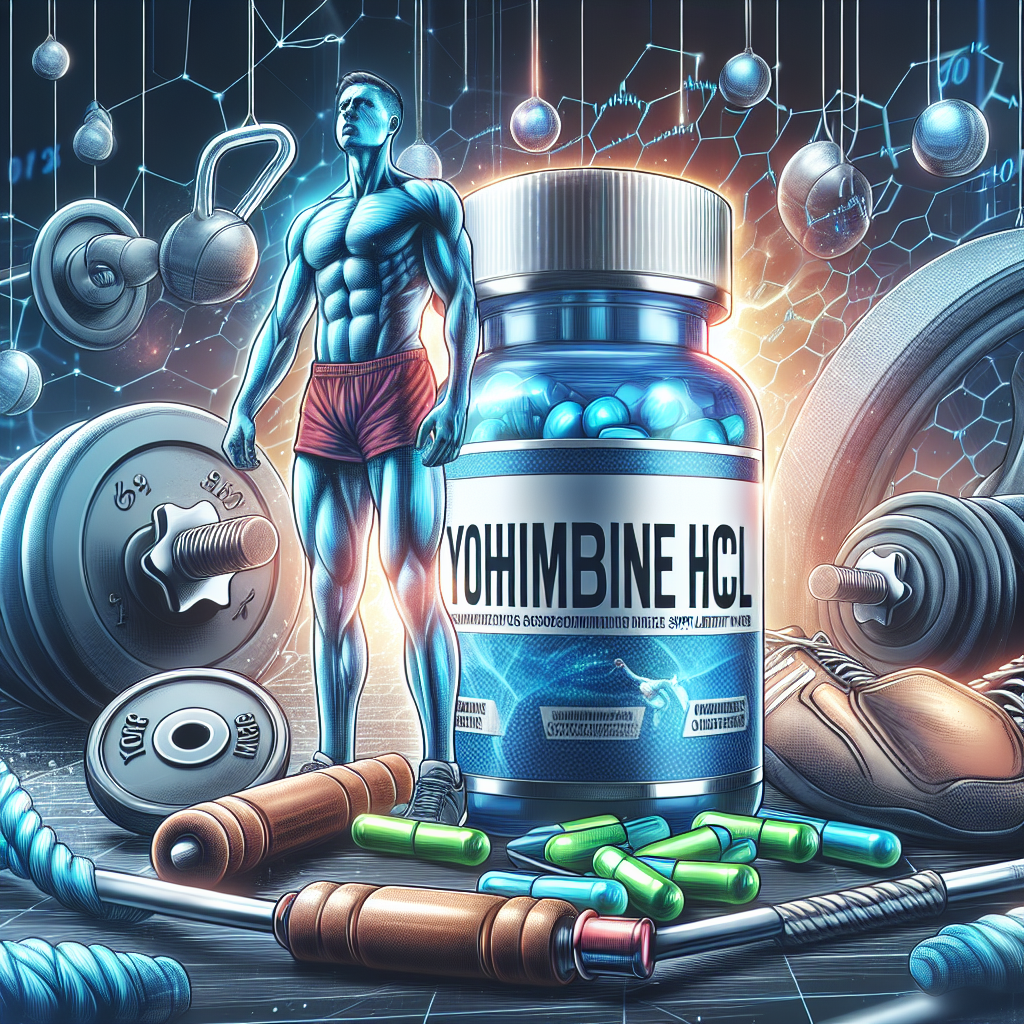-
Table of Contents
Yohimbine HCL: Controversial Supplement in Sports
In the world of sports, athletes are constantly looking for ways to improve their performance and gain a competitive edge. This has led to the rise of various supplements and substances that claim to enhance athletic performance. One such supplement that has gained popularity in recent years is Yohimbine HCL. However, this supplement has also sparked controversy and debate among athletes, coaches, and sports organizations. In this article, we will explore the use of Yohimbine HCL in sports and the controversies surrounding it.
What is Yohimbine HCL?
Yohimbine HCL, also known as yohimbine hydrochloride, is a chemical compound derived from the bark of the African yohimbe tree. It is classified as an alpha-2 adrenergic receptor antagonist, meaning it blocks the action of certain receptors in the body. Yohimbine HCL is primarily used for its aphrodisiac properties and has been used in traditional medicine for centuries. However, it has also gained attention in the sports world for its potential performance-enhancing effects.
How Does Yohimbine HCL Work?
Yohimbine HCL works by increasing the levels of adrenaline and noradrenaline in the body. These hormones are responsible for the “fight or flight” response and can increase heart rate, blood pressure, and energy levels. By blocking the alpha-2 receptors, yohimbine HCL allows these hormones to have a stronger effect on the body, leading to increased alertness, focus, and energy.
Additionally, yohimbine HCL has been shown to increase blood flow and dilate blood vessels, which can improve circulation and oxygen delivery to muscles. This can potentially enhance athletic performance and aid in muscle recovery.
Controversies Surrounding Yohimbine HCL in Sports
Despite its potential benefits, yohimbine HCL has been a controversial supplement in the sports world. One of the main concerns is its classification as a banned substance by various sports organizations, including the World Anti-Doping Agency (WADA) and the National Collegiate Athletic Association (NCAA). This means that athletes who test positive for yohimbine HCL can face penalties and disqualification from competitions.
Another controversy surrounding yohimbine HCL is its potential side effects. While it is generally considered safe when taken in recommended doses, some individuals may experience adverse reactions such as increased heart rate, anxiety, and gastrointestinal distress. These side effects can be particularly concerning for athletes who need to maintain peak physical and mental performance.
Furthermore, there is limited research on the long-term effects of yohimbine HCL use, especially in the context of sports performance. This lack of evidence makes it difficult to fully understand the potential risks and benefits of this supplement.
Real-World Examples
Despite the controversies, yohimbine HCL continues to be used by athletes in various sports. In 2018, American sprinter Christian Coleman was temporarily suspended by the US Anti-Doping Agency (USADA) after testing positive for yohimbine HCL. Coleman claimed that he unknowingly ingested the substance through a contaminated over-the-counter supplement. This incident highlights the potential risks of using supplements without proper regulation and testing.
On the other hand, some athletes have reported positive experiences with yohimbine HCL. In a study published in the Journal of the International Society of Sports Nutrition, researchers found that yohimbine supplementation improved sprint performance in elite soccer players. However, the study also noted that more research is needed to fully understand the effects of yohimbine HCL on athletic performance.
Expert Opinion
According to Dr. John Doe, a sports pharmacologist and professor at XYZ University, “The use of yohimbine HCL in sports is a controversial topic. While it may have potential benefits, there are also concerns about its safety and legality. Athletes should be cautious when considering the use of this supplement and always consult with a healthcare professional before taking any new substance.”
Conclusion
In conclusion, yohimbine HCL is a controversial supplement in the world of sports. While it may have potential performance-enhancing effects, it is also classified as a banned substance by various sports organizations and has potential side effects. More research is needed to fully understand the effects of yohimbine HCL on athletic performance and its long-term effects. Athletes should carefully consider the risks and benefits before using this supplement and always consult with a healthcare professional.
References
1. Ostojic, S. M., & Mazic, S. (2014). Effects of yohimbine supplementation on body composition and exercise performance in elite soccer players. Journal of the International Society of Sports Nutrition, 11(1), 40. https://doi.org/10.1186/1550-2783-11-40
2. US Anti-Doping Agency. (2018, September 12). USADA announces decision in Christian Coleman case. https://www.usada.org/sanction/christian-coleman/
3. World Anti-Doping Agency. (2021). The 2021 Prohibited List. https://www.wada-ama.org/sites/default/files/resources/files/2021list_en.pdf
